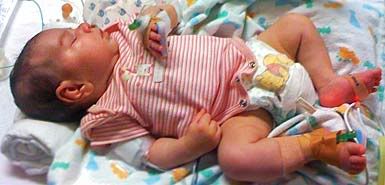 With your indulgence, I'd like to post a Christmas top ten. I realise not everybody agrees with the spelling of Xmas in the title, but I'm happy to use it because X, or "Chi" in the Greek alphabet, is the first letter of Christ in that language and has always stood for Christ, as in the "Chi Rho" monogram that is, among many other things, the seal of St Stephen's Guild of Altar Servers.
With your indulgence, I'd like to post a Christmas top ten. I realise not everybody agrees with the spelling of Xmas in the title, but I'm happy to use it because X, or "Chi" in the Greek alphabet, is the first letter of Christ in that language and has always stood for Christ, as in the "Chi Rho" monogram that is, among many other things, the seal of St Stephen's Guild of Altar Servers.10 - Lo he comes with clouds descending
 A constant and justified complaint of Professor Calculus' is that we seem to move from Guy Fawkes Night on 5th November to Christmas in the commercial calendar, and Advent gets lost somewhere along the way. My only critique of his view is that Christmas starts just after the summer holidays in some major stores. But here's his favourite Advent hymn, sung by the choir of Lichfield Cathedral in Staffordshire:
A constant and justified complaint of Professor Calculus' is that we seem to move from Guy Fawkes Night on 5th November to Christmas in the commercial calendar, and Advent gets lost somewhere along the way. My only critique of his view is that Christmas starts just after the summer holidays in some major stores. But here's his favourite Advent hymn, sung by the choir of Lichfield Cathedral in Staffordshire:9 - December Song
The title of this song is confusing as it's actually about Christmas. What I like about both song and video is that it uses searing cyber-Dickensian critique to accentuate the value of Christmas for a generation of kids cursed not only with familial breakdown but also the availability of 24/7 communications technology, much of it bearing anti-Christian messages at the traditional times of Christmas and Easter. Enjoy.
8 - The Power of Love
 This was Frankie Goes to Hollywood's third single. It followed Relax and Two Tribes, so everybody I knew watched its debut with hands ready to cover eyes. But it was a pwerful retelling of the Nativity, and it worked. EJ Norman released it as a treat for her fans last year: click her pic to see her profile, and watch out for further releases.
This was Frankie Goes to Hollywood's third single. It followed Relax and Two Tribes, so everybody I knew watched its debut with hands ready to cover eyes. But it was a pwerful retelling of the Nativity, and it worked. EJ Norman released it as a treat for her fans last year: click her pic to see her profile, and watch out for further releases.7 - What child is this?
The question echoes down through the centuries, from supporters, detractors and the victims of acts He would not have sanctioned. As any parent can attest to, a baby changes everything. This is a collaboration between Andrea Bocelli and Mary J Blige.
6 - I believe in Father Christmas
A perfunctory hearing of this song might leave the listener with the impression that it's anti-Christian, but that's not my interpretation, having heard it for 30-odd festive seasons. It's not exactly pro-Christian, either. Greg Lake's setting of Troika, the fourth movement out of five in Prokeviev's Lieutenant Kijé suite, is an object lesson in getting folk to listen to your words by giving them quality music - hymn writers pay attention, please! Having said that, I can't disagree with Lake's conclusion - The Christmas we get we deserve.
5 - Christmas Song
Gilbert O' Sullivan's assertion that he was dreaming of a peaceful world instead of a white Christmas obviously hit a chord - he's performing here with a choir from a Jesuit girls' preparatory school. I imagine many members of the armed forces posted abroad for Christmas - and their families - agree with him.
4 - Wonderful Christmastime
Paul McCartney provides a masterclass in how to write and perform the classic Christmastime song.
3 - I'll be home for Christmas
Bing Crosby first made this song famous and a favourite in forces serving abroad - here it is performed by the Carpenters, and it has relevance for conflicts in Afghanistan. Please spare a thought and whisper a prayer for the troops out there.
2 - Mary's Boy Child
Harry Belafonte first recorded this song, but it became a worldwide hit with Boney M's calypso version, which is my favourite rendition of the piece. Enjoy.
1 - Silent Night
 It must have been fate that flummoxed the organ in Austria's Nikolaus-Kirche on Christmas Eve 1818: it forced Father Josef Mohr to bring a melody he'd composed on guitar to local headmaster Frances Xaver Gruber, desperately hoping that the latter could come up with lyrics. 170 years later, glamsters-turned-popsters Bros gave many of us a plesant surprise with their interpretation.
It must have been fate that flummoxed the organ in Austria's Nikolaus-Kirche on Christmas Eve 1818: it forced Father Josef Mohr to bring a melody he'd composed on guitar to local headmaster Frances Xaver Gruber, desperately hoping that the latter could come up with lyrics. 170 years later, glamsters-turned-popsters Bros gave many of us a plesant surprise with their interpretation.If you enjoyed this, click here for some more Top ten songs about...





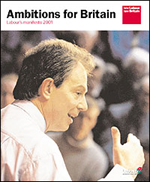
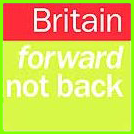
 ve upon them must be praised. For example, when I returned from the domestic violence course, the first thing I said to Minora was that if she meets a boy whose last girlfriend does not have a name but is constantly referred to as "bitch" and such epithets, she should walk. "Da-ad!" she replied. "That's what the teachers tell us!"
ve upon them must be praised. For example, when I returned from the domestic violence course, the first thing I said to Minora was that if she meets a boy whose last girlfriend does not have a name but is constantly referred to as "bitch" and such epithets, she should walk. "Da-ad!" she replied. "That's what the teachers tell us!"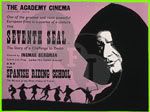
 Londoner Arnold Bax, who loved to holiday in the West of Ireland, composed Elegiac Trio in 1916 about the failed Easter rising, the elegy being for the chocolate-box Ireland of his imagination as much as the dead. What was arguably more tragic than what happened was what didn't - Roger Casement was picked up by British forces shortly after landing on Banna Strand in Kerry, having been taken there by U-Boat. Casement was trying to get the message to Irish rebels to abort the operation, as the German promise of help - on the basis of "my enemy's enemy" - was, like the French promise of help during the
Londoner Arnold Bax, who loved to holiday in the West of Ireland, composed Elegiac Trio in 1916 about the failed Easter rising, the elegy being for the chocolate-box Ireland of his imagination as much as the dead. What was arguably more tragic than what happened was what didn't - Roger Casement was picked up by British forces shortly after landing on Banna Strand in Kerry, having been taken there by U-Boat. Casement was trying to get the message to Irish rebels to abort the operation, as the German promise of help - on the basis of "my enemy's enemy" - was, like the French promise of help during the 

 Never somebody to let a song away with only one meaning, Paul McCartney combined the faith of his childhood with memories of his mother in Let it Be. The
Never somebody to let a song away with only one meaning, Paul McCartney combined the faith of his childhood with memories of his mother in Let it Be. The  This was sung by Edith Piaf, "the sparrow", about les Grognards, an elite unit - essentially a special forces regiment - who were sent to Russia in the ill-fated campaign defeated by Generals January and February.
This was sung by Edith Piaf, "the sparrow", about les Grognards, an elite unit - essentially a special forces regiment - who were sent to Russia in the ill-fated campaign defeated by Generals January and February. 

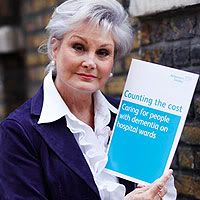

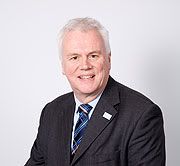


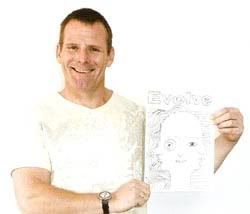 After the Relapse Prevention Course I came up with the idea of a magazine. We got together a few of us ex-addicts, some of them are on meth [methadone], some of them are off...We had a magazine meeting this morning and I was the only one who turned up because the others have floated off because it's just taken too long.
After the Relapse Prevention Course I came up with the idea of a magazine. We got together a few of us ex-addicts, some of them are on meth [methadone], some of them are off...We had a magazine meeting this morning and I was the only one who turned up because the others have floated off because it's just taken too long.
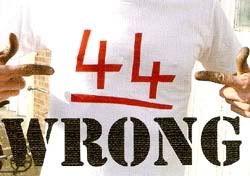 One of the many interesting and commanding articles in the Autumn edition was written by Dr Christine Hugh-Jones, who is the doctor in charge of Cambridge's Access Surgery, which takes on homeless clients. She was writing about the pioneering
One of the many interesting and commanding articles in the Autumn edition was written by Dr Christine Hugh-Jones, who is the doctor in charge of Cambridge's Access Surgery, which takes on homeless clients. She was writing about the pioneering 
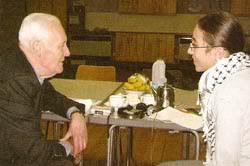

 The screening campaign is a textbook exercise in wasting money. For example, one strand of the initiative is to send testing kits to under-25's who requested them, and asking for them to be sent back. So, last year, Huntingdon Connexions sent out 360 testing kits. 3 were returned.
The screening campaign is a textbook exercise in wasting money. For example, one strand of the initiative is to send testing kits to under-25's who requested them, and asking for them to be sent back. So, last year, Huntingdon Connexions sent out 360 testing kits. 3 were returned. The tragedy of all this is that the Government is packaging it with a campaign to delay early sex. You don't dissuade kids having sex by concomitantly giving them condoms, as in the C-Card scheme. You get there by starting from the position that some things are objectively right and others objectively wrong, but reinforcing compassion for individuals who for whatever reason fall short of the mark (as I betimes do in various ways). For instance, at the Roman Catholic secondary school I attended, the SPUC (
The tragedy of all this is that the Government is packaging it with a campaign to delay early sex. You don't dissuade kids having sex by concomitantly giving them condoms, as in the C-Card scheme. You get there by starting from the position that some things are objectively right and others objectively wrong, but reinforcing compassion for individuals who for whatever reason fall short of the mark (as I betimes do in various ways). For instance, at the Roman Catholic secondary school I attended, the SPUC (
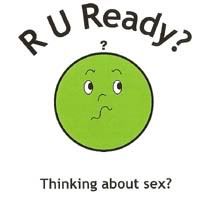
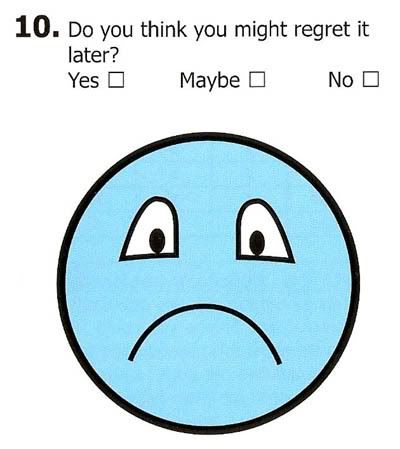

 Segev of Haaretz
Segev of Haaretz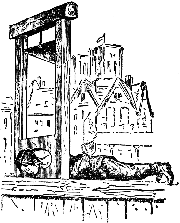
 Treaty of Versailles, whereby France was forced to recognise the existence of the German Empire in the palace's opulent Hall of Mirrors, which was reflected in a homonymous treaty signed in the same place 48 years later.
Treaty of Versailles, whereby France was forced to recognise the existence of the German Empire in the palace's opulent Hall of Mirrors, which was reflected in a homonymous treaty signed in the same place 48 years later.


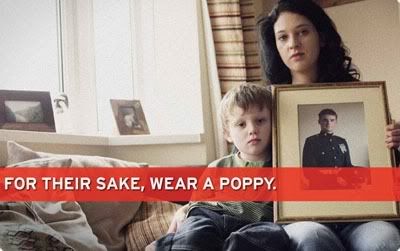

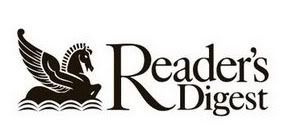


 Its rather ambivalent stance may be due to the chairmanship of Professor Martin Bobrow, non-executive director at Cambridge's Addenbrookes Hospital, Deputy Chairman of the Nuffield Council on Bioethics and a member of the Human Genetics Advisory Commission, who has declared himself in favour of pre-implantation genetic diagnoses. This would prevent such messy court cases by preventing the birth of babies with neuromuscular disorders, and would also render the
Its rather ambivalent stance may be due to the chairmanship of Professor Martin Bobrow, non-executive director at Cambridge's Addenbrookes Hospital, Deputy Chairman of the Nuffield Council on Bioethics and a member of the Human Genetics Advisory Commission, who has declared himself in favour of pre-implantation genetic diagnoses. This would prevent such messy court cases by preventing the birth of babies with neuromuscular disorders, and would also render the 
